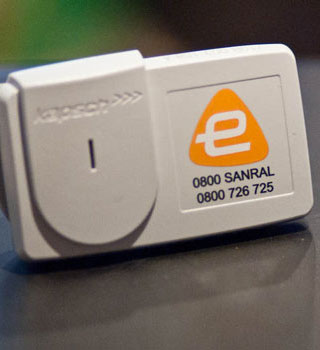 The constitutional court will hear arguments on Friday as to why it should overturn an interim interdict preventing e-tolling in Gauteng from going ahead.
The constitutional court will hear arguments on Friday as to why it should overturn an interim interdict preventing e-tolling in Gauteng from going ahead.
According to the interdict granted by the high court in Pretoria on 28 April, a full review first needed to be carried out before electronic tolling of Gauteng’s highways could be implemented.
Roads agency Sanral and national treasury were appealing against the order. The Opposition to Urban Tolling Alliance (Outa), which was granted the interdict, would oppose it.
Finance minister Pravin Gordhan applied to the constitutional court to set aside the court order preventing Sanral from implementing e-tolling.
Gordhan argued that judge Bill Prinsloo had ignored the principle of the separation of powers. He said the decision to halt e-tolling would negatively affect the economy. In its reply, Outa said Sanral was still not ready to launch the project.
On Monday, the Democratic Alliance said it had applied to join the constitutional court case. “As a political party, the DA has an interest in the key issue in this case, namely the extent to which courts can and should exercise their powers to interdict government,” DA MPL Jack Bloom said in a statement.
The party had asked to be admitted as a friend of the court to make a “substantive contribution” to the case. “Outa has not opposed our application, but Sanral and the national treasury have indicated their opposition. If government wins, then expect to see more decisions like the e-tolls pushed through without proper consultation,” Bloom said.
The high court in Pretoria would hear further arguments in the e-toll case on 26 November.
Under the project, motorists would pay more than 35c/km to travel on some of Gauteng’s major roads.
The project had been scheduled to start on 30 April, but was postponed after a meeting between the ANC and alliance partner Cosatu. — (c) 2012 Sapa




